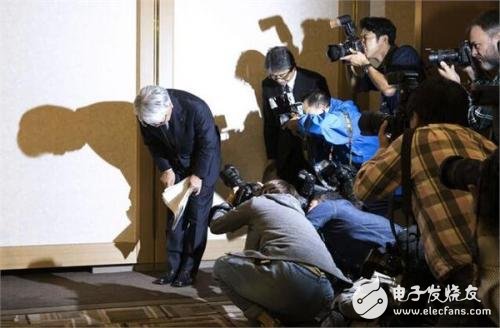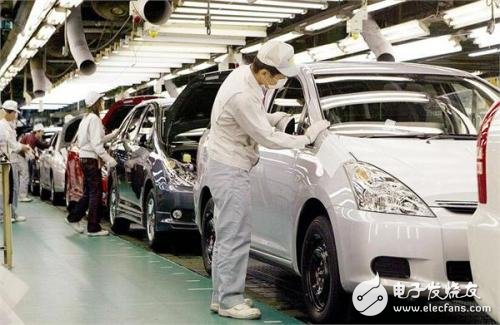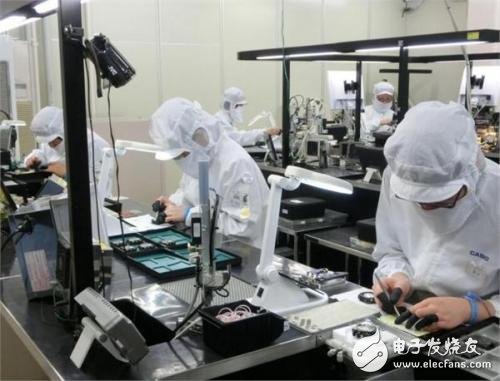Once upon a time, Japan’s reputation for quality and efficiency in manufacturing revolutionized the country’s post-war economy, changed global business practices, and produced management manuals and business consulting books that filled a library. Today, this image has collapsed. Companies such as Kobe Steel, Mitsubishi Materials, and Subaru have admitted to manipulating quality inspections in recent months, but there have been no safety hazards. Takata Corp. admitted last year that more than 50 million vehicles in the United States supply defective airbags to declare bankruptcy. Mitsubishi Motors admitted to covering up vehicle failures and counterfeiting fuel economy data. Nissan Motor Co., the world's fifth-largest automaker, has revealed that its factories in Japan have allowed unqualified employees to conduct final quality checks on some cars, which may be traced back to the 1990s. According to the company, during the audit process, the foreman often provided the trainees with badges of certified inspectors. A person familiar with the matter said that since the results of the new car inspection were recorded on paper and stored in a binding machine, it was almost impossible to determine how many cars were affected. Nissan Motors recalled 1.2 million vehicles in Japan, almost every one of which was produced in the three years to September. Nissan said that no security problems have occurred. Corporate misconduct has occurred all over the world, but the Japanese manufacturing scandal has become the core of the popularity of Japanese brands, as well as the domestic view. Japanese brands used to be synonymous with quality and have achieved good results in many quality surveys, but in the past two years, American automakers have already beaten them in JDPower's first quality survey, and other manufacturers have also Catch up. These scandals are likely to accelerate the erosion of global market share in Japanese-made products, making the main rival China further the world's largest economy. And one of the most influential management and manufacturing theories in Japan is also being questioned. In publications such as the Harvard Business Review, the Japanese model relies heavily on the concept of “kaizen†and is often translated as “continuous improvementâ€. In practice, this means eliminating unnecessary activities, reducing excess inventory, and using teamwork to solve problems. It puts the production line workers on the factory floor with great responsibility for managing day-to-day operations and innovation. Workers who are considered by many Japanese as craftsmen have traditionally provided lifelong protection for their work in exchange for their dedication to the company's goals. In a frequently cited example, individual Toyota Motors workers were authorized to pull out the power cord to stop the assembly line when serious problems were discovered. Screws or tools on the factory floor are seen as a major discretion for discipline and major improvements. The problem today is that many Japanese companies can no longer provide guaranteed lifelong employment for the craftsmen of the factory floor. According to management consultants and corporate lawyers who are fully aware of these issues, the devolution of so much power to employees exposes the company to the risk of fraud and layoffs, while at the same time giving executives room to shirk their responsibilities. Hideaki Kubori, an experienced Tokyo lawyer who handles corporate scandals, said: "It has now been broken." He said that the company's inability to fully control the industry has led to a "crisis" in Japanese industry. Kobe Steel, located near Osaka, produces high-end steel for trains, cars and rockets. It recently acknowledged the quality certification documents for thousands of customers for more than 500 products. An internal company report completed in October found that as the company tried to maintain profitability, pipeline workers were overworked and executives were out of touch with shop floor workers. Takashi Ueda, a 24-year-old Kobe steel subcontractor, said that during busy times, the problem has intensified and the final quality check for spring steel wires used in automotive engines. He said that when the delivery pressure was very small, Kobe Steel employees approved it when he told them that the product might not meet the required standards. He said: "Sometimes we are forced to give priority to fast transportation." A Kobe Steel company employee who worked in the company for 30 years, as a plant manager and headquarters, said that after the outbreak of the Japanese bubble economy in the early 1990s, the company's pressure began to increase. He said quality inspectors are one of the primary goals of layoffs because they are not as busy as line workers. He said that the assembly line workers were told to conduct their own quality checks, and after the company suspends recruitment, some quality inspections were outsourced. Workers involved in data forgery believe that they have no choice because they need to keep products moving, and customers with urgent orders sometimes accept products that do not meet specifications. Kobe Steel said in a written statement that management's pressure to achieve profits and meet production deadlines is one of the root causes of misconduct. The company said it has commissioned an independent investigation to advise on reforms. Screen Protector Cutting Machine Tpu Hydrogel Cutting Plotter,Inteligent Screen Protector Cutter,Mobile Phone Cut Plotter,Screen Protector Cutter Shenzhen TUOLI Electronic Technology Co., Ltd. , https://www.szhydrogelprotector.com

